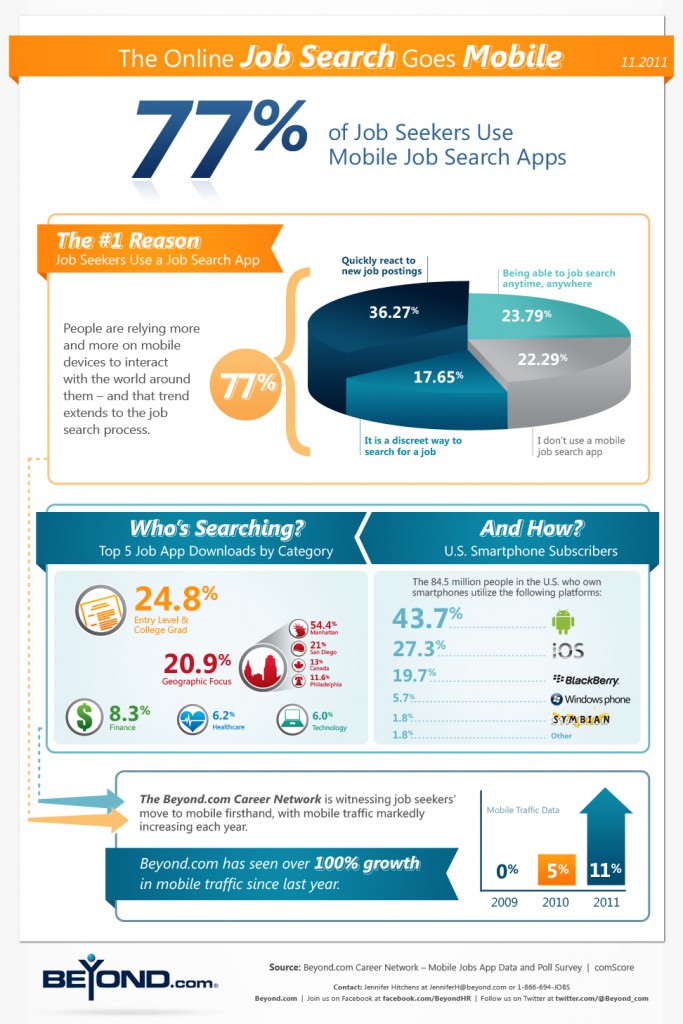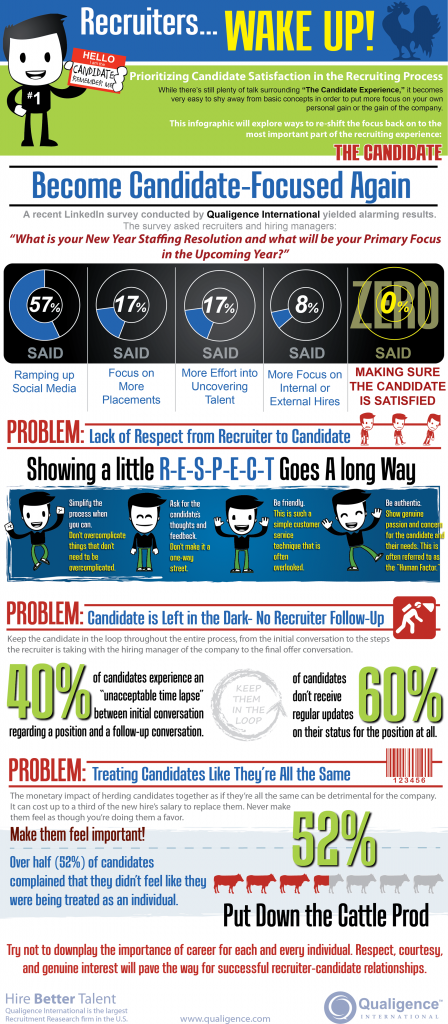 Today’s guest blogger is Doug Beabout, from The Douglas Howard Group and Recruiter e-Learning. Doug brings over thirty-five years of expertise in personal top billings, personnel services firm ownership, and industry training. His tenure in executive recruiting has resulted in his personal success at building four highly successful executive recruiting and executive search businesses as owner. Doug works a search “desk” every day in both the medical and automotive products industries. He is uniquely qualified as a personnel services industry trainer. Many of his clients have put their net worth and corporate objectives and achieved recruiting excellence because of his training and guidance.
Today’s guest blogger is Doug Beabout, from The Douglas Howard Group and Recruiter e-Learning. Doug brings over thirty-five years of expertise in personal top billings, personnel services firm ownership, and industry training. His tenure in executive recruiting has resulted in his personal success at building four highly successful executive recruiting and executive search businesses as owner. Doug works a search “desk” every day in both the medical and automotive products industries. He is uniquely qualified as a personnel services industry trainer. Many of his clients have put their net worth and corporate objectives and achieved recruiting excellence because of his training and guidance.
Recruiters are separating today into two very different groups. First, the group that has reported 2012 as a great year for placements, secondly, those recruiters who are failing at record rates causing even greater attrition across 2012. We are experiencing a very fertile and historic phenomenon. Nearly all employers report they are unable to find critical talent. 2012 has been a historic year for us (and many with whom I interact) in that contingent fees are being eclipsed by eager employers who are happily engaging in container search or in other words, paying a sizeable portion of the fee in advance on a search they simply cannot continue leaving unfilled.
Conversely, a large number of companies cling to the notion that putting multiple contingency recruiters in a race to their door with candidates is in their best interest. Many employers do this to leave the possibility on the table that a candidate may stumble upon their doorstep and they can avoid the expense of a recruiter’s fee. Common sense says that is not a prudent choice. Recruiters put little if any loyalty or serious commitment into a client who harbors this belief. In reality, recruiters often move on from a simple contingency search in about two weeks if they fail to discover a qualified candidate. This practice has been common since I joined the recruiter ranks thirty-five years ago. Recruiting agreements like this have never served either party as well as either side expected.
This recruiter is not saying that a contingent fee search is to be avoided. I am saying that if you accept a search on contingent terms, do so if the client is amenable to signing an exclusive right of referral for a reasonable period. Thirty days was a commonly acceptable time frame but in recent months, most recruiters and employers report a significantly longer time to fill a professional position. The reason is mathematically evident; the candidate pool is less than one-half as populated as it was just a few years ago.
2013 holds an incredible potential for well-trained and disciplined recruiters who engage with employers as true partners in the search process. Employers that become great clients in the days ahead will have come to realize the value of this form of engagement. It is incumbent on us as recruiters to develop trusted relationships based upon a value-added search process and we must avoid the typical transactional approach we take or capitulate to when approaching employers.
I have seen five past recessions and various states of economic recovery. The emergence of the PC, Internet and technology centric recruiting tools have caused concerns for recruiters who saw them as a threat to their value and subsequent success. The recruiting industry grabbed every possible asset from all these. Human resources also did. Soon thereafter, recruiters who chose to drop their fundamental recruiting practices and replace them with technology-based practices had a period of success while the active candidate pool remained well populated. Literally, thousands of recruiters have struggled in the last few years as the candidate pool shrank by retiring baby-boomers. While the mouse and keyboard replaced the telephone as a primary tool, recruiters saw rapidly diminishing results due to their lack of hard skills in sourcing, recruiting and managing a recruiting process. These hard skills are the foundation of all successful recruiters’ practices and processes.
Many employers continue to use the job boards, candidate pools, professional sites with very limited success when seeking critically skilled professionals. Those that have become great clients toady accepted the fact that what once worked well is failing and are seeking a “better way”. These employers exist in every industry and they are awaiting or seeking a solution to seize talented people. They are waiting on that call that offers them the answers.
The past couple of years have been no doubt a challenge for most of us. What is keeping many recruiters from picking up that telephone is fear of failure and rejection. The technology tools offered a low exposure to rejection that enjoyed by many recruiters. The big problem now is that recruiter comfort in failing passive practices has served to increase what is labeled as “Call Reluctance”. This malady has stifled many recruiters who are starting out as rookies. I have trained thousands of recruiters and helped them face this head-on with success. Now, it is much more deeply rooted and cannot be overcome by the simple advice of “just jump in the cold water because you will soon become adjusted to it”.
Encouraging a person to pick up the telephone once they have the training required to perform is one thing, it is entirely another when one’s fear of the telephone is based upon their comfort of more passive steps such as a PC mouse and the keyboard. This person, lacking the hard skills training to perform, can rationalize their reluctance to “dial”. Until they give up on a failed comfort and become determined to adopt contact-based recruiting, they will continue in their rationalizations. Sadly, I have seen throngs of people hold on fiercely to those efforts until they simply quit recruiting and look for a living elsewhere.
Throughout 2012, I heard an increasing number of employers confess that they just cannot find the people they want to hire and that the techno-toys are not producing the results they need to locate talent. Once they learn about how we can apply a direct recruiting process that capitalizes on the hard skills they lack, they are all ears (pun intended). Clients will understandably seek a cost-effective approach to talent acquisition. While key positions remain open, they continue to suffer losses of revenue and staff resulting in massive cost.
The fee a recruiter charges is easily justified when the recruiter compares it to what they can discover about losses in a relationship-based approach. Once won over by this simple mathematical comparison, employers expect to see much better and faster results. Attempting to deliver the people by applying the ineffective attempts of employers is a failure awaiting a date. Recruiters have run out of excuses and rationalizations now. They must “buck-up” and accept the fact that they must master recruiter as a “contact sport”.
Employers have failed widely hiring third-party recruiters to internalize the skills they could possess. Frankly, I see no sane reason why a recruiter who, on just an average basis, is earning over $150,000 as a consultant, taking a huge drop in income to fulfill the role of an internal recruiter. I am not saying that internal recruiters are always inept. I am simply stating that they can be of greater service where financial incentives are much higher. Further, the person hired from our ranks in the third-party recruiting industry to reduce the recruiter fee expense often becomes a coordinator of referrals from third party recruiters who attempt recruiting in the passive manner that fails the employer that hired them. Does this sound like an effective solution? In my experience, this common scenario fails employers and deters hard-skilled recruiter from serving those employers.
The time has finally come when we must master the skills that empower us to penetrate desirable sources of talented people directly or in other words, on the phone not the computer. I am not advocating that we turn our computers into boat anchors and forsake ourselves of the intelligence that lies on the information highway. What I do recommend is that we respect the prime hours when “we can reach out and touch someone” and develop the core competencies needed to be effective recruiters in a very shallow talent pool. U.S. Bureau of Labor Statistics reports that less than 4% of the professional population is unemployed. Why seek the few when the many are reached by a skilled telephone conversation. It is what employers expect us to do. It is also something they widely avoid doing for themselves; I ask you, “Can you think of a better time to be in our industry?”
 Earlier this week I talked with one of the independent recruiters in NPA. He was lamenting yet *another* placement deal that fell apart because the client took too long to make an offer. It seems that many clients still don’t understand the reality of the talent short market that we are in. For several years, government and media sources in the USA have been hammering home the high unemployment rate, leading many employers to believe there is a glut of available job candidates. While it’s true that the rate is still high, the rate on its own doesn’t tell the whole story. For people with a bachelor’s degree or higher – the kind of people your clients want to hire – the unemployment rate is below 4%. This is generally considered “full employment.”
Earlier this week I talked with one of the independent recruiters in NPA. He was lamenting yet *another* placement deal that fell apart because the client took too long to make an offer. It seems that many clients still don’t understand the reality of the talent short market that we are in. For several years, government and media sources in the USA have been hammering home the high unemployment rate, leading many employers to believe there is a glut of available job candidates. While it’s true that the rate is still high, the rate on its own doesn’t tell the whole story. For people with a bachelor’s degree or higher – the kind of people your clients want to hire – the unemployment rate is below 4%. This is generally considered “full employment.”







